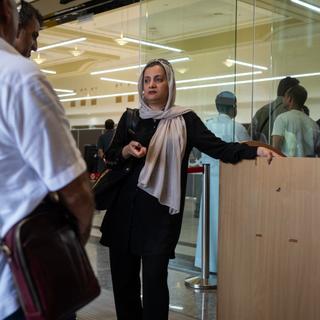


In Dubai, the Iranian diaspora experiences mixed emotions
FeatureMost Iranians who live in the Gulf Emirates oppose the government in Tehran; they feel torn between rejecting Israel's aggression and feeling satisfaction at seeing regime figures eliminated.
The connection between Amena, her sister Tara and Saba (the interviewees did not want to give their full names) was obvious. Sitting in the kitchen of Amena's apartment in northern Dubai, the three Iranian women spoke openly. They reminisced about mutual acquaintances they had discovered back in Iran, but mostly about the war, which had upended their lives and those of their loved ones. For 12 days − much of it spent with no news from their families because communications in Iran had been cut − they anxiously followed updates on Israeli bombings through social media.
Amena, a 40-year-old jeweler, has been living in the United Arab Emirates for six years with her four children. When she realized, after the war began on June 13, that many Iranians – travelers and businesspeople in transit – were stranded in Dubai, she posted an announcement on social media offering to host women in her home. Saba contacted her that Sunday. Her weekend of leisure and partying had just turned into a long and anxious wait; her return flight to Shiraz was canceled due to the closure of the airspace. Ferries heading to the port of Bandar Lengeh, in southern Iran, were already overwhelmed and fully booked for the foreseeable future.
With only a few savings left and no way to receive money transfers from Iran, the 35-year-old kindergarten teacher needed to find shelter. And so, the adventurous amateur photographer found a new family with Amena and Tara, her 37-year-old younger sister. "Dubai is so expensive. The Iranian authorities are prioritizing the elderly and the sick. Thankfully, Iranians living in the Emirates, like Amena, stepped up to host us and to pay for our transport and medicine," Saba said.
You have 76.63% of this article left to read. The rest is for subscribers only.
